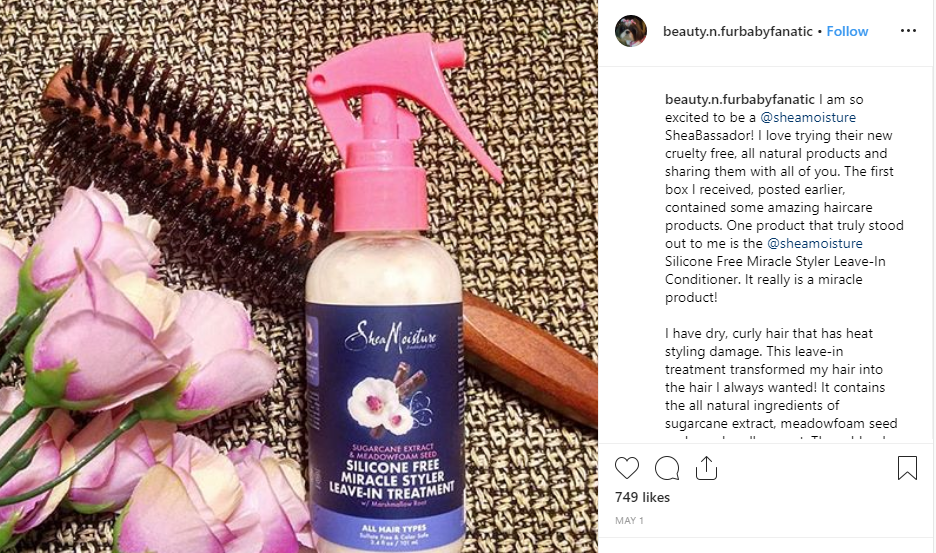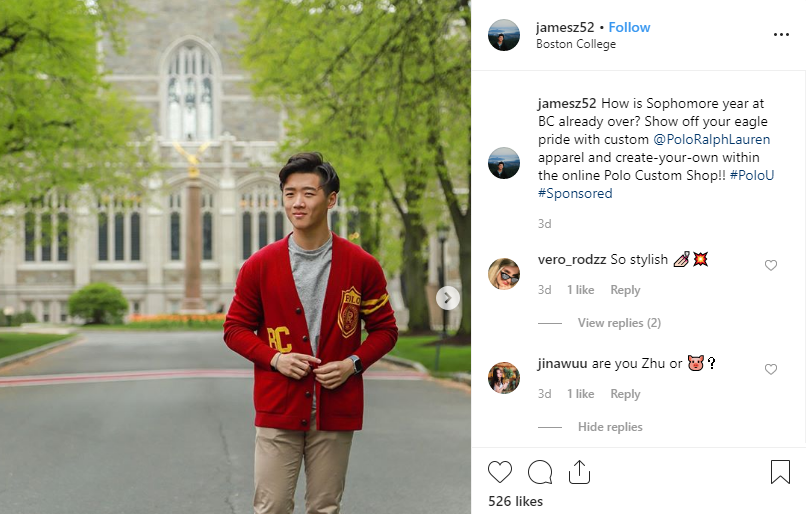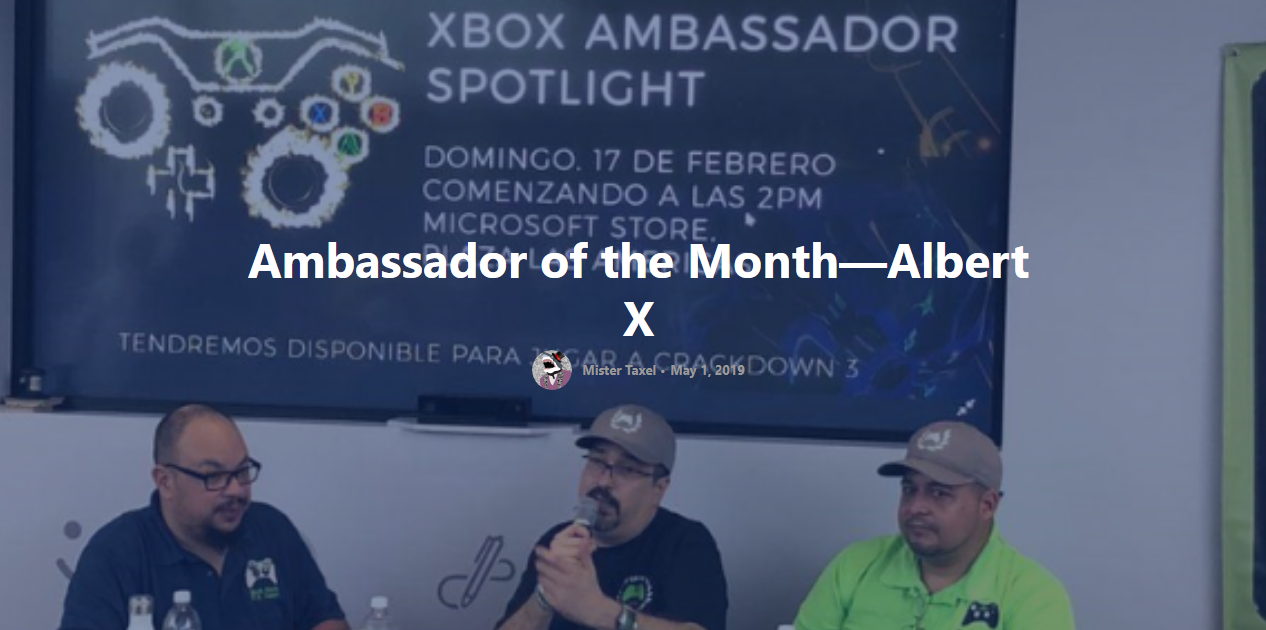Never underestimate the power of word of mouth! Recommendations from people who genuinely love your brand are your strongest marketing tools—they resonate with your audience far better than messages directly from your brand.
So, mobilizing and sustaining these recommendations in the long-term is crucial. And with their willingness to commit to your brand for the long term, brand ambassadors are powerful marketing assets!
But who are brand ambassadors, and what is a brand ambassador program? Most importantly, what factors are key to making your ambassador program successful? Let’s find out.
Table of Contents
- How to Create a Brand Ambassador Program
- Who is a brand ambassador?
- What is a brand ambassador program?
- How to create a successful brand ambassador program
- Key Takeaways
Who is a brand ambassador?
Brand ambassadors are real people who believe in your brand and love your products. These individuals actively use your brand’s products, and they want to spread the word about your products because they are passionate about seeing your brand succeed. Think of them as “top-notch cheerleaders!”
Brand ambassadors can be your:
- Employees
- Partners
- Your customers.
But no matter what their relationship to your brand is, they are experts in promoting your brand via word-of-mouth (They might also be authorities in their field).
Usually, one of their main roles is content creation or posting about your brand on their social media accounts, but many will spread the word about your products offline as well. Unlike influencers, who only represent you in the short term, brand ambassadors have agreed to maintain an ongoing relationship with your brand. And ambassadors will often help you without compensation because seeing you succeed is incentive enough.
These people love having genuine, one-on-one conversations about your brand, as opposed to sticking to a script. So, they’re pros in harnessing the power of trusted online recommendations—and the power of word-of-mouth.
Brand ambassadors give new customers a reason to trust you, because they inform others about products from their own authoritative perspective, without pushing others to try or buy.
Plus, ambassadors usually become your lifelong customers. Thus, brand ambassadors are extremely important for your marketing strategy. Learn more about the benefits of brand ambassadors.
Michelle (@beauty.n.furbabyfanatic) serves as a brand ambassador for Shea Moisture. Here, she shares how one Shea Moisture leave-in product helps her care for her curly hair.
What is a brand ambassador program?
A brand ambassador program formalizes your relationship with people who love your brand and gets them involved in promoting you officially. Through a brand ambassador program, you’ll recruit your biggest advocates— people who are already engaged with your brand. These people are the ones who have enthusiastically promoted it without prompting.
The ambassadors you recruit for your program will focus on promoting your brand by increasing sales, driving conversions, and/or augmenting brand awareness, online and offline. So, a brand ambassador program lets your company channel the strength of trusted recommendations to accomplish your brand’s goals efficiently.
As part of the program, you’ll give your ambassadors insider information about the brand, including key brand messaging and campaign messaging, so they can help your brand accomplish your goals through word-of-mouth.
You’ll also give them some basic guidelines to follow when representing your brand. But even with these guidelines, ambassadors will and may have already promoted your brand authentically, without any scripts. The use of a program is to help spread the word about your brand on social media, on other websites, at public events, at trade shows, through face to face interactions, and through networking.
How to create a successful brand ambassador program
Now that you know the basics of brand ambassadors and brand ambassador programs, here are some steps for creating a successful program.
1. Know what you’re looking for in an ambassador
Before you can start an ambassador program, you’ll need to find the right ambassadors. But even before that, you’ll need to know what qualities make a successful ambassador, so you can search with a plan!
Whether they’re niche authorities, audience ambassadors, or passionate existing customers, you’ll want to choose ambassadors who will help you reach your brand’s specific goals. Meaning those who embody your brand’s philosophy, and who love your brand and its products. The best ambassadors will fit at least one of these categories:
- The enthusiast – People who are very enthusiastic about your products and/or services. Look for the most glowing posts on social media and review sites!
- Prior authentic posters – People who have posted authentic love for your brand more than once, without prompting. In your program, brand ambassadors will need to post about your brand multiple times, but these posts must also come across as natural.
- Niche authorities – Authorities in your niche. Their expertise will make prospective customers even more likely to trust their recommendations. For example, an athletic shoe company might recruit a runner as an ambassador, and a sunscreen company might ask a dermatologist to represent them.
- Those who blend with your target – People who can easily reach your target audience. For instance, a brand targeting college students might recruit campus brand ambassadors. Depending on their campaign, a plant-based burger company will either find vegans who already love their product, or meat-eaters who are impressed by how much the burger tastes like traditional meat. And a men’s clothing brand will probably only pick male ambassadors.
- The true professional – People who conduct themselves with professionalism online and in person (in addition to fitting in at least one of the other categories above). You don’t want to pick an ambassador who has a history of questionable, disrespectful, or insensitive posts or offline actions—someone unprofessional like that could damage your reputation. Instead, pick people with a strong conscience, both digitally and offline.
James Zhu is a Polo Ralph Lauren campus ambassador at Boston College.
2. Find and reach out to ambassadors
You can find ambassadors in three main ways: through manual social media searches, through software programs, or through an application process.
Social media searches
Before deciding to start an ambassador program, you might have already found a few people who posted about how much they love your brand on social media. If you saved their info or reposted their sentiments on your own social accounts, they’re a good place to start.
You could search social media manually for more people who have used your hashtags or tagged you in their posts, but this can be very time-consuming and frustrating. And searching for people who have mentioned your brand (without tags or hashtags) is even more difficult.
Software programs
Instead, use software to easily find people who have engaged with your brand. Programs like SocialToaster and Brand24 let you search for people who have mentioned your brand or products, and see who is talking about you online.
- Once you’ve found people who seem like great potential ambassadors, ambassador software will also help you reach out to them.
- Software tools like these are extremely cost-effective, especially considering the time they save you, the sales ambassadors generate, and the fact that many of these programs help you track and manage ambassadors in addition to contacting them.
Application Process
Alternatively, you could reach out to some of your known best customers, or even open up a brand ambassador application form on your website, and let potential ambassadors come right to you.
Whatever method you choose (including through software), you can then narrow down your potential contact pool even further by asking each person to complete an application form.
- In the form, explicitly ask if they would be willing to share your products with their network—more than once—and weed out any “nos.”
- It’s also beneficial to ask why they chose your product, and why they love your brand.
- After all, you want ambassadors who have a true passion for your brand, not ones who will take the opportunity for personal gain alone.
Tip: Whatever method you use, once you’ve decided which potential ambassadors to contact, reach out to each of them with a personalized note. Even though they’re enthusiastic about your brand already, a personalized note shows that you’re going the extra mile, so it makes potential ambassadors more likely to sign on.
3. Set, share, and track goals for your ambassador program
You’ve recruited a group of authentic, enthusiastic ambassadors—awesome! Now it’s time to enter an agreement with each of them, give them the information they need to be brand experts, and set goals together.
- Establish expectations – Clear expectations like how often you want each ambassador to post about your brand on social media, what platforms the posts should be on, how many people you want them to reach out to in a given time, or what their role will be at trade shows and live events.
- Clear communication – Clearly communicate the short-term and long-term goals of your ambassador relationship, and of your marketing efforts as a whole.
- Use a contract – Have ambassadors sign a written contract, agree to progress tracking through software, and/or verbally agree that they will meet the expectations.
- Give the inside scoop – Give ambassadors insider information about the brand, as well as about any relevant promotions and campaigns.
- Form a relationship – Get to know the ambassador’s own goals, and strive to meet them. Most ambassadors sign on because they love your brand, but many have other intrinsic motivations in mind such as resume-building. As Sharon Savariego, CEO and co-founder of Mobilize, explained to Forbes, “Today’s ambassador programs are driven more by intrinsic motivations that provide opportunities for mutual growth. People join these programs to widen their social circles, receive recognition for their impact, and grow both professionally and personally.”
- Apply rules – Set rules to make sure ambassadors represent your brand properly. But, encourage ambassadors to tell their authentic story when they represent your brand, and make sure that they have sufficient creative control. In other words, give them guidelines, but not “lines.”
- Track everything – Track how well you’re meeting your brand goals. You can easily see how your ambassadors represent your brand on social media, how often they post, and how much engagement and reach each post generates, with useful software programs like ExpertVoice and Heartbeat. These analytics programs offer full suites of ambassador management tools.
4. Reward ambassadors if you choose—but recognize them even if you don’t reward
While setting goals, you’ll also need to establish if and how you’re going to reward ambassadors. Yes, most ambassadors are fine with working for free, but a reward is a great way to show ambassadors how valued they are.
- If you’ve chosen to reward ambassadors, clearly state how they will be compensated and what they need to do to earn the compensation. (Must they complete a certain number of posts? Assist at a live event?)
- You can compensate ambassadors with cash, free products, or gift cards.
- Free products give ambassadors even more of a reason to share your brand! But, if an ambassador shows off free products that you provided for them in a post, or is otherwise compensated for a post, make sure that they disclose this compensation with #ad or #sponsored.
- Give each ambassador a unique referral code or link to help them get incentives. This will also help you track how many new customers an individual ambassador sends your way. Use referral software to assist you with this process.
- Remember to keep the intrinsic rewards that ambassadors share that they are seeking in mind too.
Whether or not you compensate ambassadors, recognizing their achievements is another great way to make them feel valued. Repsly suggests featuring your top ambassadors on a dedicated page of your website.
You can also run an ambassador of the month series on your social media, or on your blog. Highlight what makes the featured person a strong ambassador, and how they embody your brand philosophy and ideals. You could also ask them to answer questions about their time as an ambassador, as well as other aspects of their life, so they can share their story.
XBOX features top ambassadors in Ambassador Of the Month blog posts.
5. Build rapport with ambassadors, and always keep them updated
In any long-term relationship, you don’t just contact someone once and leave it at that. You need to continue to contact the person and build a relationship of trust.
It’s the same way with your brand ambassadors—don’t stop communication after the initial calls or emails. Instead, keep the lines of communication open.
- Make sure that ambassadors can easily reach you with any questions or suggestions they might have.
- Are you starting new campaigns? Do you have updates on the company’s progress? Are you launching new products? Let your ambassadors know. Transparency builds trust, and ambassadors want to feel like they are part of your brand’s journey.
- Let ambassadors give feedback to build your brand. Ambassadors want to see your brand succeed. They will often offer different perspectives that will help your campaigns and promotions better resonate with certain audiences. And they are great people to test out, and offer feedback on new products.
- But let the feedback go both ways. Praise ambassadors for their successes, encourage them, and recognize their effort. You could also offer constructive, kind suggestions on how they can better promote your brand (as long as you don’t stifle their creative control).
- And don’t be afraid to schedule check-in calls or personalize messages with updates for each individual ambassador—especially if you shift your specific goals or establish new campaigns. This will make them even more inclined to trust you!
Remember: building trust helps your reputation, too—especially when ambassadors share how awesome you are to work with!
Key Takeaways
Brand ambassadors are passionate about seeing your brand succeed, and are experts at providing word-of-mouth information about your brand that consumers trust. Harness their promoting power through a brand ambassador program, which makes their relationship with your brand official and lets you track their efforts.
When creating a brand ambassador program, make sure to choose the ambassadors who will best promote your brand, and consider using software to help streamline the process of finding and managing ambassadors.
Set expectations and track your brand goals, but consider the ambassadors’ goals as well, and let ambassadors have creative control. Think about compensating ambassadors for their work; if you do decide to issue rewards, clearly define what ambassadors must do to earn these rewards when you recruit each ambassador.
And most importantly, keep the lines of communication open, so ambassadors feel like they’re a valued part of your brand’s journey.


